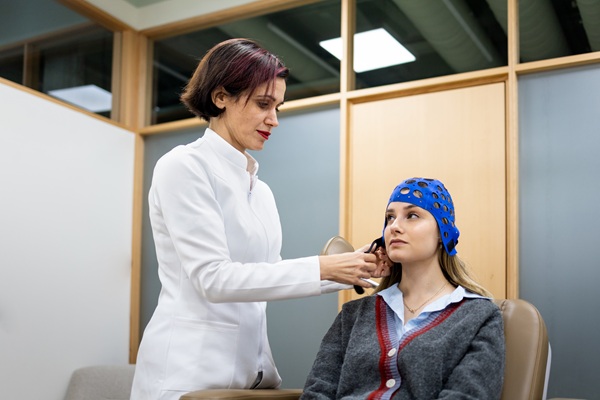What to Expect at Your Ketamine Infusion Appointment

Ketamine infusion is quickly becoming popular as an effective treatment for anxiety, depression and post-traumatic stress disorder. Visiting the medical office for ketamine infusion might seem somewhat unnerving, especially if when not familiar with the process. Knowing what to expect during an appointment can help patients prepare better for the treatment.
Getting started
The patient will first meet with the doctor for a consultation. During the meeting, the doctor will ask about the patient’s mental and physical health history so they can develop a proper treatment plan. The doctor will explain the ketamine infusion procedure, what to expect and an aftercare routine. Patients will also be able to ask questions about the procedure.
The treatment plan and the first dose of ketamine depend on certain factors such as the patient’s medical history, weight, age, previous treatment and current medications. The subsequent treatments will be based on the patient’s response to the first procedure.
During the procedure
Ketamine infusion therapy typically lasts for about 45 to 60 minutes for mental disorders like PTSD, bipolar and depression. Treatments usually entail a higher dose administered over the long term for individuals receiving ketamine for pain management.
The patient will get an IV bag containing a mixture of drugs, including ketamine, lidocaine and magnesium. To start the session, the doctor will locate a vein on the arm and use a small IV needle, which should not hurt a lot. The IV bag is connected to the IV pump that delivered accurate measures of ketamine into the bloodstream to balance treatment.
Afterward, the treatment start and all the patient will have to do is relax in a comfortable reclining chair. The doctor will continue to monitor the patient’s vital signs through the machines in the room and administer a personalized dose of ketamine and other drugs intravenously. During the treatment, the doctor will blood pressure, pulse and oxygen levels.
After the procedure
Ketamine infusion is usually a pleasant experience. Throughout the procedure, the patient will remain conscious. Instead, they will notice a somewhat euphoric sensation and feel relaxed. The treatment will feel like a therapy session and should end with the patient feeling refreshed and energized as the effects wear off. The patient should notice the effects of the infusion almost immediately, unlike other SSRI drugs that may take several weeks or months for effects to manifest. This is one of the advantages of ketamine infusion.
Some patients notice an enjoyable feeling of dissociation. For many, the dissociation effect is helpful and ensures a positive response to the procedure. This aspect of treatment is normal and there will always be staff members around to supervise and monitor the patient’ s progress.
After the session, patients can rest in the office for 30 minutes to an hour. Nausea is rare, but if it occurs, the doctor can control it by including Zofran to the treatment. Some patients may feel slightly tired, while others feel okay enough to leave the office immediately. Either way, adequate rest is recommended.
Final note
Ketamine infusion treatment is highly effective and transformative for many patients. If you want to learn more about ketamine infusion therapy and its application, call for a consultation.
Get more information here: https://futurepsychsolutions.com or call Future Psych Solutions at (803) 335-5232
Check out what others are saying about our services on Yelp: Read our Yelp reviews.
Recent Posts
Mental health plays a critical role in overall well-being, influencing thought patterns, emotional stability, and behavior. For those experiencing persistent challenges, a formal diagnosis can provide clarity and a structured approach to healing. With guidance from a psychiatrist, individuals can better understand their condition and begin a path toward long-term mental wellness.A mental health diagnosis…
Are you looking for a TMS doctor? A TMS doctor is one that offers Transcranial magnetic stimulation to treat patients with major depressive disorder, which is also called MDD or clinical depression. Every TMS doctor utilizes their own method of treatment and many practices under other titles such as that of a psychiatrist. Learning more…
Post-traumatic stress disorder (PTSD) is a mental health condition that can develop after experiencing or witnessing a traumatic event. PTSD treatment aims to reduce symptoms and help people function better in their daily lives. It also focuses on improving their overall health and well-being. PTSD often causes anxiety, flashbacks, and emotional distress, making effective treatment…
Everyone experiences occasional anxiety, but an anxiety disorder involves persistent, excessive worry and physical symptoms that can disrupt daily routines, relationships, and overall well-being. If left untreated, these symptoms can intensify, impacting mental and physical health. Seeking help from a psychiatrist can be a significant first step toward effectively managing anxiety disorder symptoms and getting…


